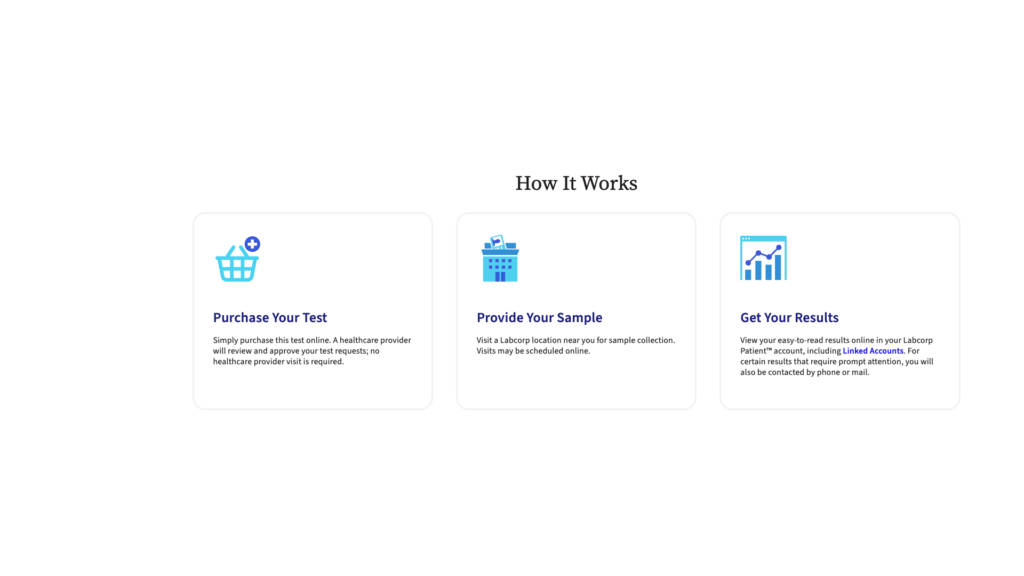Today I want to show you how easy it can be to test for inflammation with a C-Reactive Protein Test.
In the Gutsy community, we talk a lot about inflammation because, at the root of gut health issues is always some sort of inflammation.
Let’s break it all down further today.
What is Inflammation?
Inflammation, in and of itself, is not necessarily a bad thing. It is an essential part of the body’s healing process.
According to the Cleveland Clinic,
Inflammation occurs when inflammatory cells travel to the place of an injury or foreign body like bacteria. If inflammatory cells stay too long, it may lead to chronic inflammation.
It’s the chronic inflammation that becomes a problem leading to inflammatory conditions like Rheumatoid Arthritis, fatty liver disease, and the one you have definitely heard about, IBD (inflammatory bowel disease).
The Journal of Inflammation outlines these five cardinal signs of inflammation:
- redness (rubor)
- swelling (tumour)
- heat (calor; only applicable to the body’ extremities)
- pain (dolor)
- loss of function (functio laesa)
And while these phases are fairly easy to detect with external inflammation, they aren’t as obvious when it comes to inflammatory diseases.
So often inflammation turns to chronic conditions because we can’t visually see anything.
Therefore, it’s imperative that we are both constantly listening to the signals the body is giving off and also testing where appropriate.
How to Test for Inflammation with a C-Reactive Protein Test
Click HERE to save this article for later.

If you have been experiencing any of the following symptoms, you might consider testing with a C-Reactive Protein Test:
- Fever
- Chills.
- Rapid breathing (tachypnea)
- Weight loss or weight gain
- Rapid heart rate (tachycardia)
- Nausea and vomiting
- Frequent acid reflux (heartburn), constipation or diarrhea
One test that I discovered you can purchase on your own is Labcorp OnDemand’s Inflammation (hs-CRP) Test.
Here are 5 primary reasons to consider this test:
- You’ve been experiencing the above symptoms.
- You have already been diagnosed with an inflammatory condition.
- Trying to monitor CRP levels. Studies show that there is a positive correlation between high CRP levels and the probability of having a heart attack. If you are experiencing unexplained fatigue, frequent infection, ongoing muscle or joint aches and pain, or any GI symptoms, this test may provide insight about your health.
- Concerned about cardiac disease. An hs-CRP test can be an excellent first step in determining if you need to seek medical advice or additional testing for a suspected chronic disease associated with inflammation or if you are at an increased risk for heart disease.
- Simply trying to reduce risk. Studies show you can effectively lower your CRP (when levels indicate increased cardiovascular risk) with a healthy diet and regular exercise.
Note: Another benefit of this test from Labcorp OnDemand is that it is an hs-CRP test which stands for high-sensitivity C-reactive protein test. This testing is more sensitive than a standard C-reactive protein test. That means the high sensitivity CRP test can find smaller increases in C-reactive protein than a standard test can.
When you take the C-Reactive Protein Test from Labcorp OnDemand, these are the things you’ll find out:
- Your levels of the C-reactive protein: a substance made by the liver in response to inflammation.
- The results of this inflammation test may indicate the presence of an illness, injury, or infection.
- If you have elevated CRP levels, you’ll be more apt to considering several diseases and conditions including chronic inflammation, heart disease, diabetes, rheumatoid arthritis, and cancer.

Easy Process
If you want to start with this test for understanding more about the fatigue you are feeling, here are the simple steps:
- Purchase your test (the test name is: Labcorp OnDemand’s Inflammation (hs-CRP) Test HERE): Simply purchase this test online. A healthcare provider will review and approve your test requests; no healthcare provider visit is required.
- Provide your sample: Visit a Labcorp location near you for sample collection. Visits may be scheduled online. There are no special preparation guidelines for this test.
- Get your results: View your easy-to-read results online in your Labcorp Patient™ account just one day after the sample arrives at their lab. For certain abnormal findings and results that require prompt attention, you will also be contacted by phone or mail.
Notes:
- HSA/FSA are both accepted.
- Your testing will be performed in a CLIA-certified clinical laboratory. Labcorp provides leading-edge medical laboratory tests and services through a national network of primary clinical laboratories and specialty testing laboratories. Their labs perform regular quality assurance testing to ensure our results are accurate.
What do high levels of a C-Reactive Protein Test indicate?
It is important to note that CRP levels can be elevated from intense exercise (weight training or a long run), recent injury, illnesses or bacterial infection. Further testing, repeat testing, and/or clinical consultation with a health care provider may be required to determine the source of CRP peaks.
That said, some of the more severe reasons you might see high levels include:
- Inflammatory bowel disease, disorders of the intestines that include Crohn’s disease and ulcerative colitis
- Autoimmune diseases and rheumatic disorders, such as lupus, rheumatoid arthritis, and vasculitis
- Lung diseases, such as asthma
- Severe bacterial infections, such as sepsis
- Osteomyelitis (infection of your bone).
- Pelvic inflammatory disease (PID).
Increases of Inflammation
While relatively small elevations of CRP can be normal, high elevations with clinical significance are not.
And if you are experiencing an increase in inflammation, there are some things you can do:
- Consider an anti-inflammatory diet. Some resources:
- Unprocessed Diet
- A Gutsy Girl’s List of 36 Essential Cooking and Baking Tips
- Anti-inflammatory agents like the use of DHA vs EPA {Episode 73, Bites 19}
- Reduce stress and practice stress-reducing techniques
- Get regular exercise
- Maintain a healthy weight; remember “healthy” is different for everyone
- Stop drinking alcohol
- Get more sleep
While this post is not intended to be professional advice, trying a test like the Labcorp OnDemand’s Inflammation (hs-CRP) Test can be a great place to start.

Questions? Leave them in the comments below.
If you liked this post, you might also enjoy:
- 5 Best Natural Remedies for Fatigue and How to Test For It
- Best Foods For Hormone Balance + Women’s Health {All Things Women}
- Best Diet for IBS Flare Up (Episode 103 with Dr. Sara DeFrancesco)
Disclosure: This post was sponsored by Labcorp. All opinions started here are 100% my own. I appreciate your support, as this compensation helps with expenses to keep this website up and running, and for me to continue sharing all that I can with you. Some of the links in this post are affiliate links. This means if you click on the link and purchase the item, I may receive a small commission at no extra cost to you.
Xox,
SKH
🤰 bloating be gone! weight loss through optimal gut health for women
💃ʜᴇᴀʟ ʏᴏᴜʀ ɢᴜᴛ. ʜᴇᴀʟ ʏᴏᴜʀ ʟɪfe.
🫶🏻 founder gutbyome.com






